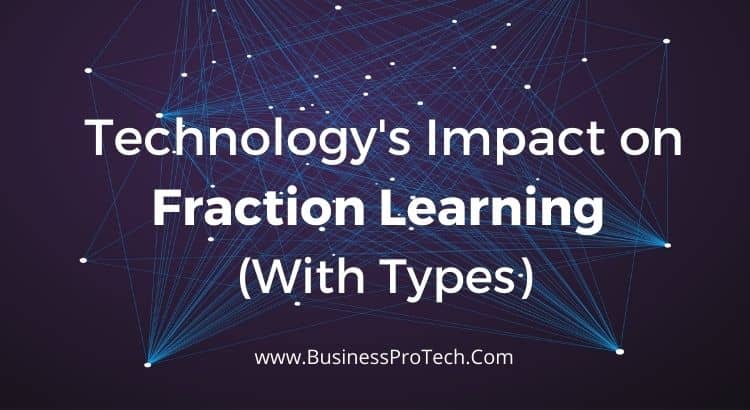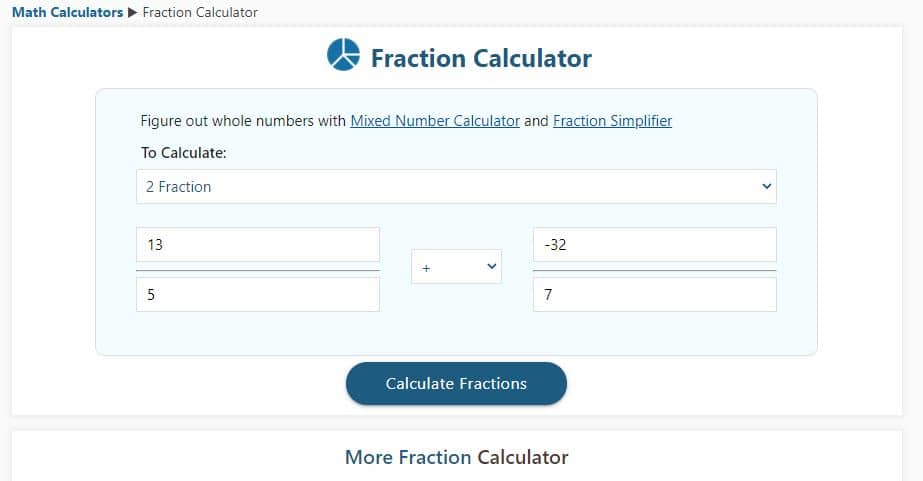In mathematics, the fraction is represented to describe a whole thing. For example, if we have to divide a pizza into four equal parts then, we have to use the fraction, we have to divide the ¼.
We can say that each piece of pizza is represented by ¼. We can use the fraction calculator to find the solution of a difficult fraction, there are two parts of the fraction: the upper portion of the fraction is called the Numerator and the lower part is called the denominator of a fraction.
The multiplication and division of the fraction are confusing for students, they can use the fraction calculator to find the answer to the fraction. Multiplying fractions and dividing fractions can be tricky for students, but technology can make the learning process become a little easier for students.
In this article, we are discussing, how technology can improve the understanding of the learning process of the students.

Using Technology to Understand the Fraction Learning
Technology has great importance in the understanding process of learning fractions for students. Technology has made the learning of fractions more collaborative and engaging, students can understand the fraction whether it is any type of fraction, students can use technology to understand any type of fraction especially students of initial level classes.
The use of technology is crucial in giving the idea of the fraction, we can use the fractions calculator to solve the fraction.
Initially, students find it difficult, how to multiply fractions as it is confusing, how to multiply the denominator and numerators, for this purpose we take the Least common multiple of the denominators.
Some students may find confusing how to divide fractions, as there are recurring fractions, and their division does not end at any point. Here we have to stop the division of the fraction after two or three significant figures.
Types of the Fractions
Technology can be used widely to explain the concept of mathematics like fractions, now if you want to explain the four types of the fractions like a unit fraction, proper fraction, improper fractions, and mixed fractions.
Unit fraction:
A fraction whose numerator is one and the denominator is a positive integer is called a unit fraction like 1/7, 1/5, 1/18
Proper fraction:
If the numerator is smaller than the denominator then the fraction is said to be a proper fraction like 3/7, 2/5, 3/18, etc.
Improper fraction:
In an improper fraction, the numerator is larger than the denominator like 9/2,5/3,4/3, etc.
Mixed fraction:
A fraction comprising of natural number and a fraction is called a mixed fraction like 2(⅗),
3( 4/6), 4(¾), etc.
Using Fraction Calculator With the Help of Technology
You can use the technology and explain the concept by using visual graphs and videos. We can also use the fraction calculator by calculator-online.net, to find the result of the multiplying fractions and dividing fractions.

Students find it difficult to determine the result, how to divide fractions and how to multiply fractions. For university students, it is better to use the fractions calculator to find the result of the fraction.
The main difficulty students find in understanding the fractions, how to differentiate between the improper and the proper fraction.
Now with the aid of technology, students can learn the fraction having the numerator less than the denominator, then the fraction is said to be a proper fraction. If the numerator is smaller than the denominator then the fraction is said to be an improper fraction.
Teachers can also explain how to solve the mixed fractions, students first have to multiply the first two numbers one is the denominator and the other multiplying number, and then add the result with the numerator. The whole concept can be explained to the students, with the help of graphics and multimedia.
Conclusion
Technology is crucial in modern-day mathematics class, as technology can make the whole concept a lot easier for the students. Students do need real-time examples to understand the concept of mathematics like fractions, complex numbers, composite numbers, and prime numbers.
Teachers can explain these concepts with the use of technology. The real-time examples clear the concept to the students, it creates and boosts the understanding level of the students.
For students, technology is great to learn the concepts quickly.